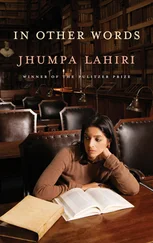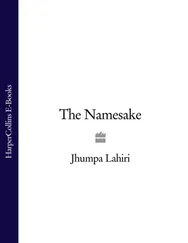He liked studying in her fleeting company. She was impressed with how far he'd got on his PhD-she told him that after she dropped out of Harvard a year ago, her mother locked herself up in her bedroom for a week and her father refused to speak to her. She'd had it with academia, hated how competitive it was, how monkish it forced one to become. That was what her boyfriend did, always blocking off chunks of his day and working at home with the phone unplugged, writing papers for the next conference. "You'll be good at it," she assured Paul. "You're devoted, I can tell." When she asked him what his exam entailed, he told her it would last three hours, that there would be three questioners, and that it would cover three centuries of English and European literature.
"And they can ask you anything?" she wanted to know.
"Within reason."
"Wow."
He didn't tell her the truth-that he'd already taken the exam the year before and failed. His committee and a handful of students were the only ones who knew, and it was to avoid them that Paul preferred to stay at home now. He had failed not because he wasn't prepared but because his mind had betrayed him that bright May morning, inexplicably cramped like a stubborn muscle that curled his foot during sleep. For five harrowing minutes, as the professors stared at him with their legal pads full of questions, as trains came and went along Commonwealth Avenue, he had not been able to reply to the first question, about comic villainy in Richard III. He had read the play so many times he could picture each scene, not as it might be performed on a stage but, rather, as the pale printed columns in his Pelican Shakespeare. He felt himself go crimson; it was the nightmare he had been having for months before the exam. His interrogators were patient, tried another question, which he stammered miserably through, pausing in the middle of a thought and unable to continue, until, finally, one of the professors, white hair like a snowy wreath around his otherwise naked head, put out a hand, as might a policeman stopping traffic, and said, "The candidate's simply not ready." Paul had walked home, the tie he'd bought for the occasion stuffed into his pocket, and for a week he had not left the house. When he returned to campus, he was ten pounds thinner, and the department secretary asked him if he'd fallen in love.
Sang had been living with them for a week when a suitor called. By then, the painting was finished, the dreary room transformed. She was removing masking tape from the edges of the windowpanes when Paul told her someone named Asim Bhatta-charya was calling from Geneva. "Tell him I'm not in," she said, without hesitating. He wrote down the name, spelled out carefully by the caller, who had said before hanging up, "Just tell her it's Pinkoo."
More men called. One asked Paul, dejectedly, if he was Sang's boyfriend. The mere possibility, articulated by a stranger, jolted him. Such a thing had happened once before in the house, the first year Paul lived there-two housemates had fallen in love, had moved out in order to marry each other. "No," he told the caller. "I'm just her housemate." Nevertheless, for the rest of the day he felt burdened by the question, worried that he'd transgressed somehow simply by answering the phone. A few days later, he told Sang. She laughed. "He's probably horrified now, knowing that I live with a man," she said. "Next time," she advised him, "say yes."
A week afterward, the three of them were in the kitchen, Heather filling a thermos with echinacea tea because she had come down with a cold and had to spend all day in classes, Sang hunched over the newspaper and coffee. The night before, she had locked herself up in her bathroom, and now there were some reddish highlights in her hair. When the phone rang and Paul picked up, he assumed it was another suitor on the line, for, like many of Sang's suitors, the caller had a slight foreign accent, though this one was more refined than awkward. The only difference was that instead of asking for Sangeeta he asked to speak to Sang. When Paul asked who was calling, he said, in a slightly impatient way, "I am her boyfriend." The words landed in Paul's chest like the dull yet painful taps of a doctor's instrument. He saw that Sang was looking up at him expectantly, her chair already partly pushed back from the table.
"For me?"
He nodded, and Sang took the phone into her room. "Boyfriend," Paul reported to Heather. "What's his name?"
Paul shrugged. "Didn't say."
"Well, she must be happy as a clam," Heather remarked with some asperity, screwing the lid onto her thermos.
Paul felt sorry for Heather, with her red, chapped nose and her thick-waisted body, but more than that he felt protective of Sang. "What do you mean?" he said.
"Because her lover's back, and now she can tell all those other guys to fuck off."
The boyfriend was standing on the sidewalk with Sang, looking up at the house, as Paul returned on his bike from a day of photocopying at the library. A bottle-green BMW was parked at the curb. The couple stood with an assumed intimacy, their dark heads tilting toward each other.
"Keep away from the window when you change your clothes," Paul heard him say. "I can see through the curtain. Couldn't you get a room at the back?" Paul stepped off his bike at a slight distance from them, adjusted the straps of his backpack. He was uncomfortably aware that he was shabbily dressed-in shorts, and Birkenstocks, and an old Dartmouth T-shirt, his pale legs covered with matted blond hair. The boyfriend wore perfectly fitted faded jeans, a white shirt, a navy-blue blazer, and brown leather shoes. His sharp features commanded admiration without being imposing. His hair, in contrast, was on the long side, framing his face in a lavish, unexpected style. He looked several years older than Sang, Paul decided, but in certain ways he strongly resembled her, for they shared the same height, the same gilded complexion, the same sprinkle of moles above and below their lips. As Paul walked toward them, Sang's boyfriend was still inspecting the house, searching the yellow-and-ochre Victorian facade as if for defects, until he looked away suddenly, distracted by the bark of a dog.
"Your roommates have a dog?" the boyfriend asked. He took an odd, dancelike step to the left, moving partly behind Sang.
"No, silly," Sang said teasingly, running her hand down the back of his head. "No dogs, no smokers. Those were the only listings I called, because of you." The barking stopped, and the ensuing silence seemed to punctuate her words. There was a necklace around her neck, lapis beads she now fingered in a way that made Paul think they were a gift. "Paul, this is Farouk. Farouk's afraid of dogs." She kissed Farouk on the cheek.
"Freddy," Farouk said, nodding rather than extending a hand, his words directed more to Sang than to Paul. She shook her head.
"For the millionth time, I'm not calling you Freddy."
Farouk glanced at her without humor. "Why not? You expect people to call you Sang."
She was unbothered. "That's different. That's actually a part of my name."
"Well, I'm Paul, and that's pretty much all you can call me," Paul said. No one laughed.
Suddenly, she was never at home. When she was, she stayed in her room, often on the phone, the door shut. By dinner, she tended to be gone. The items on her shelf of the refrigerator, the big tubs of yogurt and the crackers and the tabouli, sat untouched. The yogurt eventually sported a mantle of green fuzz, setting off shrieks of disgust when Sang finally opened the lid. It was only natural, Paul told himself, for the two of them to want to be alone together. He was surprised to run into her one day in the small gourmet grocery in the neighborhood, her basket piled high with food she never brought back to the house, purple net bags of shallots, goat cheese in oil, meat wrapped in butcher paper. Because it was raining, Paul, who had his car with him, offered her a ride. She told him no thank you, and headed off to the T stop, a Harvard baseball cap on her head, hugging the grocery bag to her chest. He had no idea where Farouk lived; he pictured a beautiful house on Brattle Street, French doors and pretty molding.
Читать дальше












